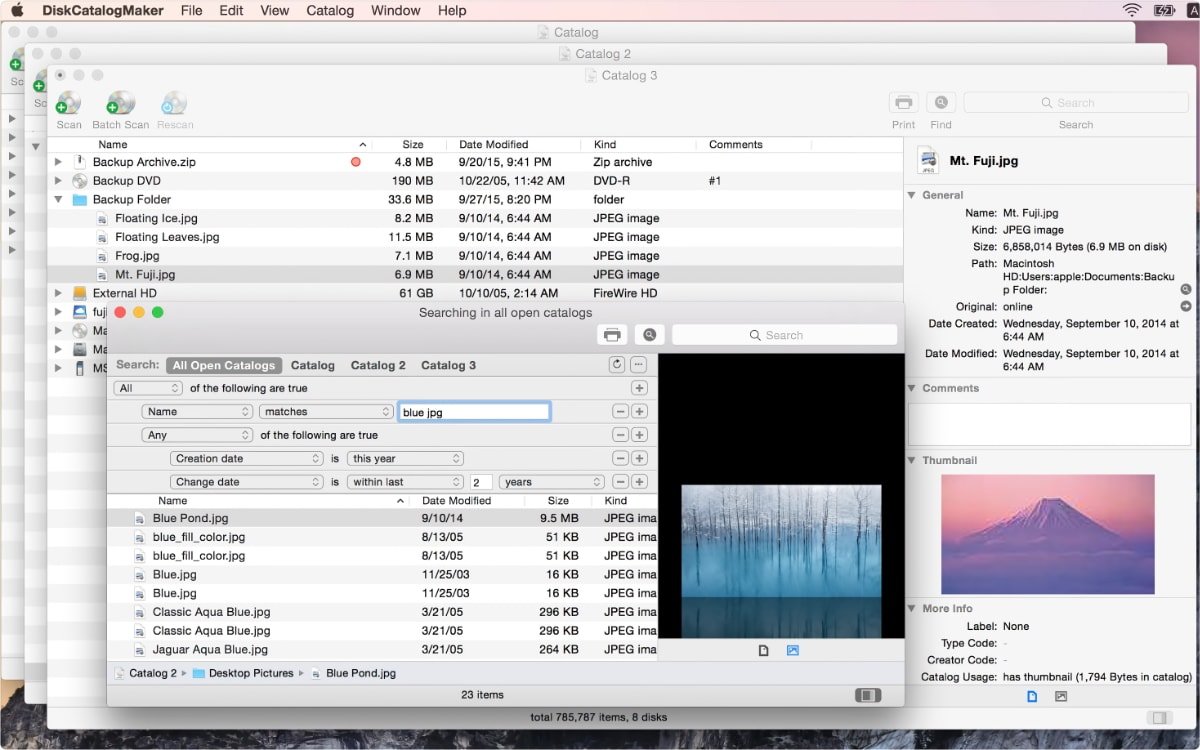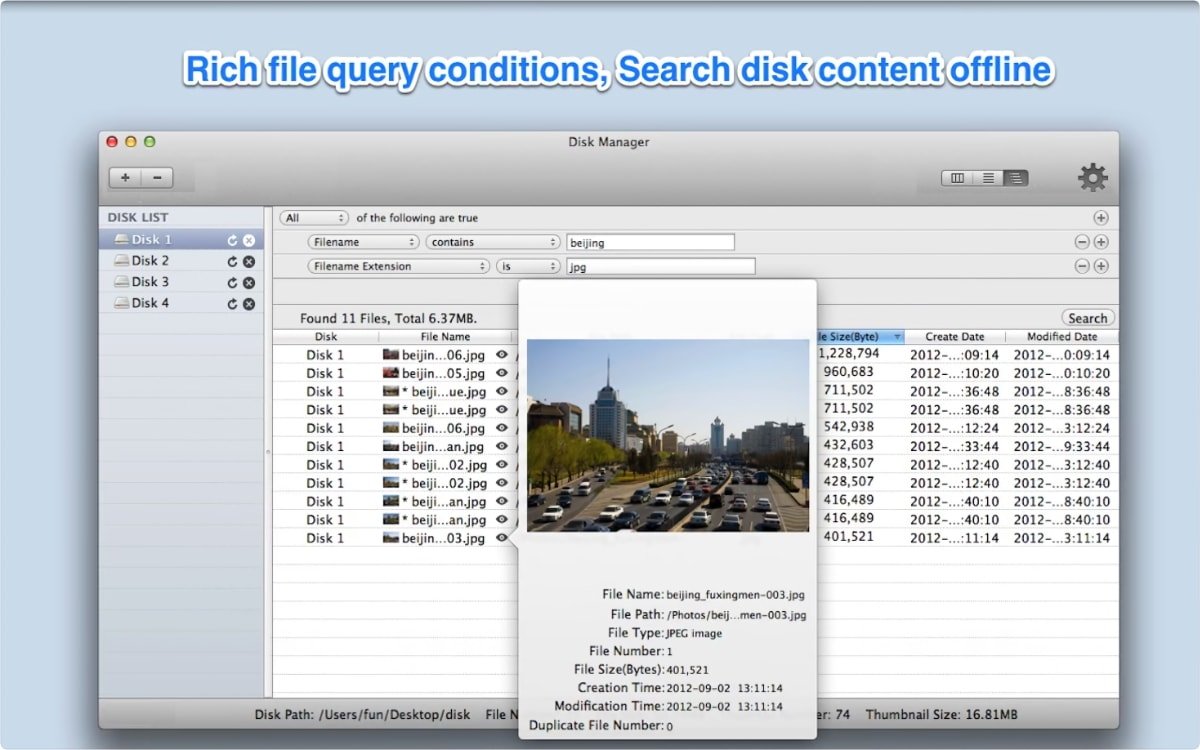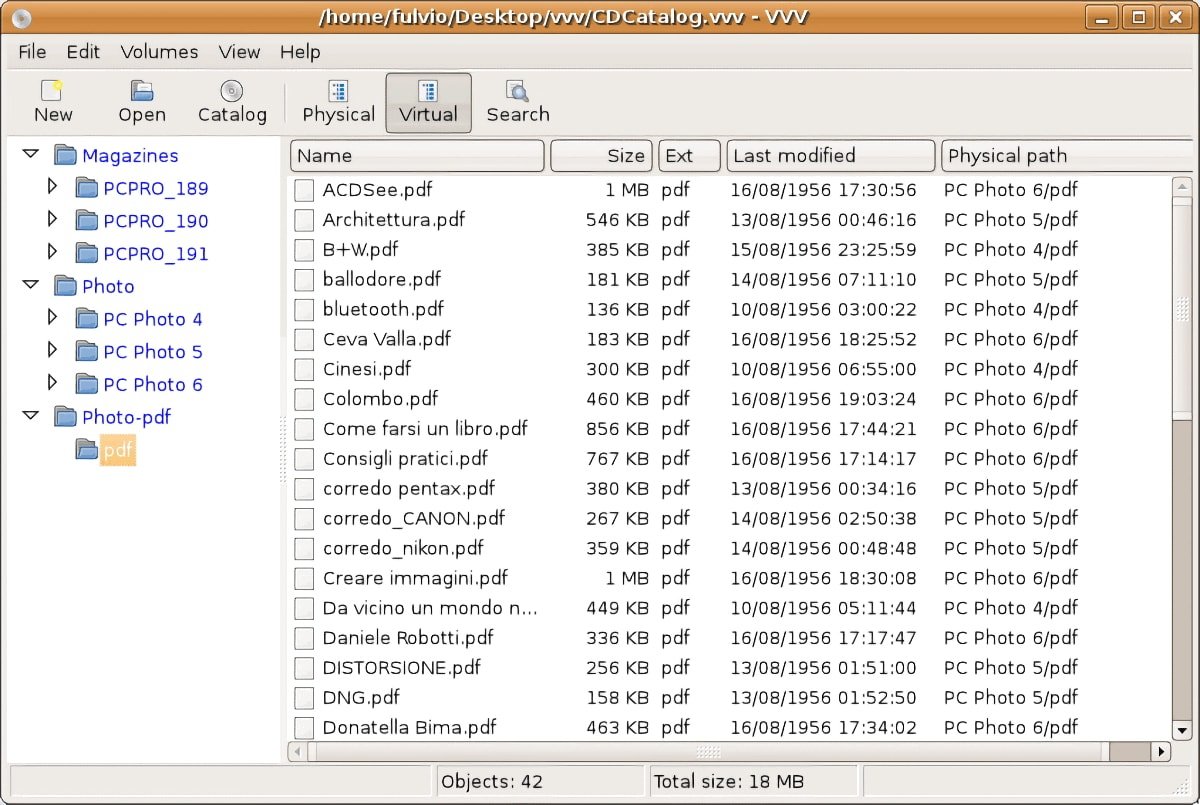Maintaining track of files stored across multiple, unconnected hard drives can be a chore, but indexing and database programs can help even when the hard drive isn't connected to a computer.
These tools are helpful when preparing to move data to a NAS device, setting up drives into a custom RAID configuration, or just remembering what was stored on hard drive number four at home.
NAS, or network attached storage, provides shared storage that several users can access. Since the device is connected to a network, its contents can be accessed from anywhere, acting as a private cloud. We recommend NAS as a way to manage and share data with friends and family, and there are plenty of devices that work great with Apple devices.
But, they can be pricey. A more common method of storage not on a storage-constrained internal SSD is just a pile of flash drives or hard drives.
For example, Spotlight, the built-in search engine for the Mac, builds an index of the file system to make files and folders searchable. But this is reliant on the storage being online and available to to the searching Mac.
Keeping track of which drives files live on is simple with third-party applications, whether hosted on a NAS or kept as separate disks. These apps bring Spotlight-like capabilities to hard drives other than the Mac's disk.
DiskCatalogMaker
DiskCatalogMaker catalogs media storage devices and can archive content. The icons of disks connected to a Mac can be dragged and dropped into DiskCatalogMaker to start browsing.
It provides a batch scan mode to scan multiple disks in an intuitive interface similar to Finder. Find by name or other file attributes, search through catalogs using Spotlight, and use AND/OR boolean search expressions to quickly drill into directories.
DiskCatalogMaker can catalog folders on a network volume and import catalog data from other programs. It's available on the Mac App Store for $69.99 with Family Sharing. Single-user licenses are available for $38.99 on the company's website.
Disk Manager
Disk Manager imports disk contents to a database, allowing them to be browsed and searched even when offline. It securely backs up disk file information and can find duplicate files to save storage space. In addition, it supports protected logins with a password.
Like DiskCatalogMaker, Disk Manager accepts rich boolean search queries to add or exclude files, folders, and disks. It's available in the Mac App Store for $4.99..
Virtual Volumes View
Virtual Volumes View catalogs hard drives, CDs, DVDs, and other storage mediums for offline search. It combines files and folders into one virtual file system, displaying metadata from audio files too. The app can share the catalog in a network server among Windows, Linux, and macOS computers.
Virtual Volumes View stores data in a relational database that can handle millions of rows, but the company promises VVV is fast, even with large catalogs. It reveals the content of disks in three views:
- Physical view - This shows the content of each disk. Folders and files are structured in a traditional directory.
- Virtual view - Data is organized as one virtual file system. Folders can be created, and physical volumes and folders can be assigned to a virtual folder. Files can be assigned to more than one virtual folder, and virtual folders can contain files stored on different disks.
- Search view - The catalog can be searched for files that meet various criteria.
Virtual Volumes View assures customers that its app is fully contained in its installation folder and won't interfere with the operating system. It's available to download for free, and the source code can also be downloaded and inspected.
 Andrew Orr
Andrew Orr












 Amber Neely
Amber Neely
 Marko Zivkovic
Marko Zivkovic
 William Gallagher and Mike Wuerthele
William Gallagher and Mike Wuerthele



 Mike Wuerthele
Mike Wuerthele







